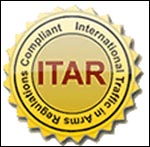 On Sunday, the New York Times revealed that the UAE had hired Erik Prince, the founder of Blackwater, to provide certain training service in the Emirates. The Times described them this way:
On Sunday, the New York Times revealed that the UAE had hired Erik Prince, the founder of Blackwater, to provide certain training service in the Emirates. The Times described them this way:
The force is intended to conduct special operations missions inside and outside the country, defend oil pipelines and skyscrapers from terrorist attacks and put down internal revolts, the documents show. Such troops could be deployed if the Emirates faced unrest in their crowded labor camps or were challenged by pro-democracy protests like those sweeping the Arab world this year.
Of course, the first question that pops to mind to us export junkies is whether this is legal or not. Fortunately, the Times had the good sense to call my colleague at Bryan Cave, Susan Kovarovics, and ask her that question.
Susan Kovarovics, an international trade lawyer who advises companies about export controls, said that because Reflex Responses was an Emirati company it might not need State Department authorization for its activities.
But she said that any Americans working on the project might run legal risks if they did not get government approval to participate in training the foreign troops.
Susan’s answer is spot on, particularly inasmuch as she said U.S. persons “might” run legal risks. Although the case might, at first, seem an open and shut case where a license is required, it really isn’t, depending on the precise boundaries of the services provided by Mr. Prince’s company. The difficult issue is drawing the line between military and police activity, a line that may be difficult to draw in autocracies like the UAE where there is no clear distinction between the police and military forces and the roles they play.
The definition of defense services in section 120.6 of the International Traffic in Arms Regulations (“ITAR”) covers, among other things, training foreign persons in the use of defense articles. But training with respect to prevention of, say, domestic terror attacks or popular uprisings might not involve training in the use of defense articles. Under the proposed new definition of defense services, training foreign troops on the use of defense articles would itself be excluded if the information provided is in the public domain. In most instances, of course, the best way to minimize risk as to whether a particular aspect of training oversteps the bounds is to have the Department of State approve a Technical Assistance Agreement covering the training.
 Because most of Washington, DC, has emptied out in anticipation of the upcoming long weekend for the Fourth of July, the nefarious Captain Obvious took the opportunity to hack into the DDTC website and leave this important reminder to exporters:
Because most of Washington, DC, has emptied out in anticipation of the upcoming long weekend for the Fourth of July, the nefarious Captain Obvious took the opportunity to hack into the DDTC website and leave this important reminder to exporters:
 Posted by
Posted by  Category:
Category: 

 Each time a company tries to tout its registration under
Each time a company tries to tout its registration under  On Sunday, the New York Times
On Sunday, the New York Times 
 Earlier this month, the Directorate of Defense Trade Controls (“DDTC”) issued a
Earlier this month, the Directorate of Defense Trade Controls (“DDTC”) issued a 

